Lotus Ministry Bangladesh: Understanding Dharma, Context & Insights
- Jeffrey Dunan
- Aug 21, 2025
- 13 min read
Article-at-a-Glance
Lotus Ministry Trust embodies dharma principles beyond religious duty, focusing on practical spiritual service in Bangladesh's most underserved regions
Founded in 2021, the organization has navigated complex political landscapes while maintaining its commitment to education, food relief, and spiritual guidance
Daily practices like morning sadhana, prasadam distribution, and community service form the backbone of Lotus Ministry's dharmic approach
Despite operating in a Muslim-majority nation, Lotus Ministry Trust builds bridges through interfaith dialogue and inclusive humanitarian initiatives
Personal transformation stories reveal how dharmic principles applied through Lotus Ministry have changed lives across Bangladesh
Dharma transcends religious boundaries, speaking to universal truths that guide righteous living. In Bangladesh, where multiple spiritual traditions coexist, Lotus Ministry Trust has emerged as a beacon of dharmic principles applied through compassionate action. Their work reaches beyond theoretical teachings to address tangible needs in some of the country's most overlooked communities.

When we explore how spirituality manifests in practical service, few organizations demonstrate this connection as clearly as Lotus Ministry Trust. Their approach to dharma encompasses not just philosophical understanding but active engagement with Bangladesh's most pressing challenges—poverty, educational inequality, and food insecurity. This integration of spiritual wisdom with humanitarian service creates a holistic model that nurtures both material and spiritual well-being.
The Core of Dharma: Lotus Ministry Trust's Spiritual Foundation in Bangladesh
Dharma, often mistranslated simply as "religion," carries a far deeper significance within the spiritual traditions that inform Lotus Ministry Trust's work. At its essence, dharma represents the underlying order of the universe—the natural laws that sustain all existence. In Bangladesh's context, where multiple faith traditions intersect, Lotus Ministry Trust approaches dharma as a universal principle of righteous action rather than a sectarian doctrine. This inclusive understanding allows their work to transcend religious boundaries while maintaining spiritual depth.
What Dharma Really Means Beyond Religious Duty
The Sanskrit root "dhri" means "to uphold" or "to sustain," pointing to dharma's function as that which maintains cosmic and social harmony. Far from being merely a set of religious obligations, dharma encompasses one's unique purpose and ethical responsibilities in relation to self, community, and the world. Lotus Ministry Trust recognizes that dharma manifests differently according to individual capacities and circumstances. In Bangladesh's diverse cultural landscape, this perspective allows for a more nuanced approach to spiritual practice. Rather than imposing rigid religious frameworks, the organization encourages each person to discover how dharmic principles can guide their particular life journey.
How Lotus Ministry Trust Interprets Dharma in Daily Practice
The philosophical understanding of dharma finds practical expression through Lotus Ministry Trust's daily operations in Bangladesh. By prioritizing seva (selfless service) to marginalized communities, the organization embodies dharma as active compassion rather than abstract theory. Their educational initiatives in rural Bangladesh reflect the dharmic principle that knowledge should be accessible to all, regardless of social status or economic means.
Similarly, their food distribution programs exemplify anna-dana (the giving of food), considered one of the highest expressions of dharma across multiple spiritual traditions. Through these practical applications, Lotus Ministry Trust demonstrates that dharma isn't separate from everyday life but rather provides its ethical foundation.
The Connection Between Dharma and Personal Spiritual Growth
Within Lotus Ministry Trust's framework, personal spiritual development and service to others are inseparable aspects of dharmic practice. Members understand that inner transformation necessarily manifests as compassionate action in the world. This perspective aligns with the ancient wisdom that right understanding leads to right action. The organization's emphasis on both meditation practices and humanitarian service creates a balanced spiritual path suited to contemporary Bangladesh. Volunteers regularly report that their service experiences deepen their spiritual insights, while their personal practices enhance their capacity to serve effectively. This synergistic relationship between inner cultivation and outer service forms the cornerstone of Lotus Ministry Trust's approach to dharma.
Lotus Ministry Trust's Journey in Bangladesh: From Origins to Present Day
Founded in 2021 during the height of the COVID-19 pandemic
Initially focused on emergency food relief in northern Bangladesh
Expanded to include educational programs within the first year
Developed spiritual teaching components as communities expressed interest
Now operates in multiple districts with diverse programming
The seeds of Lotus Ministry Trust were planted during one of Bangladesh's most challenging modern crises. As COVID-19 swept through the country in 2020, leaving economic devastation in its wake, a small group of spiritually-minded individuals recognized that their dharmic responsibility extended beyond personal practice to collective action. What began as informal distribution of food packages to struggling families quickly evolved into a more structured initiative. By early 2021, these efforts had coalesced into the formal establishment of Lotus Ministry Trust, with an explicit mission to serve Bangladesh's most vulnerable populations through both material aid and spiritual guidance.
Early Beginnings: How Lotus Ministry Trust First Took Root
The founding vision of Lotus Ministry Trust emerged from a recognition that Bangladesh's northernmost villages were being overlooked by larger relief organizations. These remote communities, already struggling with chronic poverty, faced unprecedented hardship during pandemic lockdowns. The organization's earliest volunteers often traveled for hours along unpaved roads to reach isolated villages, carrying sacks of rice, lentils, and basic medical supplies. These initial journeys revealed not only material needs but also a hunger for spiritual connection and meaning amid suffering.
The Social Impact of Lotus Ministry Trust in Bangladesh
Beyond spiritual teachings, Lotus Ministry Trust has established itself as a powerful force for social change across Bangladesh. Their holistic approach addresses immediate physical needs while simultaneously nurturing long-term community development. This dual focus reflects the dharmic understanding that material wellbeing and spiritual growth are interconnected rather than separate domains.
What distinguishes Lotus Ministry Trust from other humanitarian organizations is their rootedness in local communities. Rather than imposing external solutions, they collaborate with village elders, religious leaders, and community members to identify priorities and develop culturally appropriate interventions. This participatory approach has enabled them to build lasting trust even in regions traditionally hesitant to engage with outside organizations.
Food Relief Programs During Natural Disasters
Bangladesh's geographical vulnerability places it at the mercy of cyclones, floods, and other natural disasters that regularly devastate communities. Lotus Ministry Trust's Kichri Aid project specifically targets nutritional needs during crises, providing a traditional rice-lentil dish enriched with vegetables that delivers complete proteins and essential micronutrients to disaster victims.

The organization's food relief efforts extend beyond emergency response to address chronic hunger in Bangladesh's poorest regions.
Educational Initiatives for Children and Adults
Education forms the cornerstone of Lotus Ministry Trust's long-term vision for transformation in Bangladesh. Their schools in remote northern villages provide not only academic instruction but also character development rooted in universal dharmic values like compassion, truthfulness, and service. By adapting curriculum to local contexts and teaching in regional dialects, these educational initiatives make learning accessible to children previously excluded from traditional schooling systems.
Environmental Projects and Sustainable Living
Dharmic traditions have long emphasized humanity's responsibility toward the natural world, a principle that Lotus Ministry Trust integrates throughout their work. Their environmental initiatives include the promotion of plant-based diets to reduce ecological footprints. By connecting traditional spiritual teachings about respect for nature with practical conservation efforts, the organization helps communities understand environmental stewardship as a spiritual practice rather than merely a practical necessity.
Personal Transformation Stories: Bangladeshi Devotees Speak
The true measure of Lotus Ministry Trust's impact lies in the transformed lives of individuals who have encountered their work. Across Bangladesh, people from diverse backgrounds share how dharmic principles, applied through the organization's programs, have reshaped their understanding of themselves and their place in the world. These personal narratives reveal how abstract spiritual concepts become powerful forces for change when embodied in daily life.
From Struggling Student to Spiritual Teacher
Rahima, once a struggling student from Rangpur district, discovered Lotus Ministry Trust through their educational outreach program when she was sixteen. Initially attracted by the free tutoring services, she gradually became interested in the meditation practices that began each study session. "Before connecting with Lotus Ministry, I was constantly anxious about exams and family problems," she explains. "Learning to center myself through breath awareness changed everything—not just my grades, but how I related to challenges." Today, at twenty-two, Rahima leads meditation workshops for other young women in her community while pursuing university studies in social work, embodying the organization's emphasis on passing knowledge forward.
How Bhakti Yoga Changed Family Relationships
For Kamal, a middle-aged shopkeeper, Lotus Ministry Trust's teachings on bhakti yoga transformed longstanding family conflicts that had seemed intractable.
"I had been estranged from my brother for nearly a decade over a property dispute," he shares. "Through the devotional practices I learned from Lotus Ministry, particularly cultivating gratitude and seeing the divine in others, I found the courage to approach him without resentment."
The reconciliation that followed not only healed his immediate family but rippled through their extended community, inspiring others to reconsider longstanding grievances through a spiritual lens.
Finding Peace Amid Societal Pressures
Lakshmi, a young professional working in Dhaka's competitive corporate sector, credits Lotus Ministry Trust's dharma teachings with helping her maintain inner balance despite external pressures. "In Bangladesh's rapidly changing economy, there's intense pressure to sacrifice everything for career advancement," she notes. "The Trust's programs helped me establish boundaries and recognize that true success includes spiritual wellbeing, not just material achievements." By joining weekend service projects with other young professionals, Lakshmi has built a community that supports her in living according to dharmic values even within a fast-paced urban environment.
Navigating Religious Identity in Contemporary Bangladesh
Bangladesh's religious landscape presents unique challenges and opportunities for organizations like Lotus Ministry Trust that draw on dharmic traditions. As a predominantly Muslim nation with significant Hindu, Buddhist, and Christian minorities, the country contains complex intersections of religious identity, cultural heritage, and contemporary social dynamics. Lotus Ministry Trust navigates this terrain by emphasizing universal spiritual principles while respecting the diversity of paths through which people connect with the divine.
Balancing Tradition with Modern Life
Many Bangladeshis drawn to Lotus Ministry Trust's teachings face the challenge of integrating traditional spiritual practices with contemporary lifestyles. The organization addresses this through flexible approaches that honor ancient wisdom while acknowledging modern realities. Their programs include modified meditation techniques suitable for busy professionals, family-friendly versions of traditional ceremonies, and practical applications of dharmic principles to current ethical dilemmas. This adaptive approach has proven particularly appealing to educated Bangladeshis who seek spiritual depth without rejecting the positive aspects of modernity.
How Young Bangladeshis Connect with Krishna Consciousness
For Bangladesh's youth, who comprise nearly half the nation's population, Lotus Ministry Trust offers a path to spiritual exploration that speaks to contemporary concerns. Young participants are often initially attracted by the organization's environmental activism or social justice work, only later discovering the spiritual foundation underlying these efforts. By meeting young people where they are Lotus Ministry Trust creates accessible entry points to deeper spiritual engagement.
Their youth programs emphasize critical thinking alongside devotion, encouraging participants to understand the philosophical reasoning behind practices rather than following traditions blindly.
The organization's youth-focused initiatives have created spaces where young Bangladeshis can explore questions of identity, purpose, and ethics within a supportive community. Unlike some religious environments where questioning is discouraged, Lotus Ministry Trust welcomes sincere inquiry as part of the spiritual journey, making their approach particularly attractive to thoughtful young people navigating Bangladesh's rapidly changing social landscape.
Practical Steps to Explore Krishna Consciousness in Bangladesh
For those inspired to connect with the dharmic traditions upheld by Lotus Ministry Trust, several practical pathways exist regardless of your religious background or prior spiritual experience. The beauty of their approach lies in its accessibility—whether you're seeking philosophical depth, community connection, or ways to be of service, there are entry points designed for every seeker.
Beginning your spiritual journey doesn't require dramatic life changes. Many devoted participants started with simple steps that gradually expanded their understanding and practice. What matters most is sincerity and openness to growth rather than perfect execution of rituals or complete philosophical understanding from the outset.
The integration of spiritual practice into daily life stands at the heart of the Lotus Ministry Trust approach. Their programs emphasize that dharma isn't something practiced only during special occasions or in temples, but rather a living tradition that infuses everyday activities with deeper meaning and purpose.
"The journey of a thousand miles begins with a single step. In the path of dharma, that first step is often simply showing up with an open heart and willingness to serve." — Founder of Lotus Ministry Trust
Below are specific ways to begin exploring these teachings within the Bangladeshi context, each offering a different doorway into the same transformative tradition.
1. Consult with Lotus Ministry Trust's Leaders
Schedule a personal meeting to discuss your spiritual questions...
Contact the founder of Lotus Ministry Trust... lotus.ministry.trust@gmail.com
Request guidance on which practices might best suit your circumstances
Learn about the philosophical foundations of Lotus Ministry Trust's approach
As the primary spiritual guide for many Lotus Ministry Trust initiatives, Shohag Chandra das offers personalized counsel that respects each seeker's unique background and questions. His approach emphasizes practical application rather than abstract theory, helping individuals discover how dharmic principles can address their specific life challenges.
During initial consultations, he typically recommends starting with simple practices that can be integrated into daily routines—perhaps meditation on the maha-mantra, mindful eating, or setting aside time for spiritual reading. These seemingly small adjustments often catalyze profound shifts in awareness and priorities.
Many participants report that his guidance provides clarity amid confusion, offering both philosophical context and practical direction. "Before meeting Shohag ji, I had read many spiritual books but felt overwhelmed by contradictory information," shares Anika from Sylhet. "His straightforward explanations helped me distinguish essential principles from cultural overlays, allowing me to develop a practice authentic to both the tradition and my life circumstances."
2. Join a Bhagavad Gita Study Group
The Bhagavad Gita, with its universal teachings on duty, action, and spiritual realization, forms a cornerstone of the dharmic understanding promoted by Lotus Ministry Trust. Their study groups approach this ancient text not as a historical artifact but as a living guide with direct relevance to contemporary challenges. Facilitated discussions create space for participants to wrestle with profound questions about purpose, ethics, and the nature of reality.
Join and online course here - https://iskconkurukshetra.org/online-bhagavad-gita-course/ - The exciting aspect to understand is that this course by ISKCON is formulated in a way suitable for both beginners and advanced practitioners. To strategize your spiritual journey where you explore Gita’s teachings on ethics, duty, spirituality, and the nature of the self, join the Online Bhagavad Gita Course with us today at ISKCON Kurukshetra.
Lotus Ministry Trust is committed to making these teachings accessible beyond traditional religious boundaries.
Introductory groups for newcomers with no prior knowledge
Intermediate sessions exploring philosophical nuances
Advanced study incorporating Sanskrit terminology and comparative analysis
Special groups focusing on practical application in professional contexts
Participants often develop deep bonds through shared exploration of wisdom traditions, creating communities of support that extend beyond philosophical discussion into practical assistance during life challenges. These relationships embody the teachings themselves, demonstrating how spiritual understanding naturally flowers into compassionate action.
3. Participate in Community Kirtan Sessions
For those who connect more readily through music than philosophy, Lotus Ministry Trust's kirtan sessions offer an experiential gateway to spiritual practice. These gatherings center around devotional chanting accompanied by traditional instruments, creating an atmosphere where intellectual understanding gives way to direct experience of spiritual presence.
The beauty of kirtan lies in its accessibility—no prior musical training or even knowledge of the language is required to participate. Many find that the rhythmic chanting naturally calms the mind and opens the heart, creating receptivity to deeper spiritual insights.
"When I first attended, I felt self-conscious about singing in public," recalls Rahman. "But the supportive environment and the tangible peace I experienced kept bringing me back. Now kirtan has become essential to my spiritual wellbeing."
These gatherings typically conclude with a period of silent meditation, allowing participants to absorb the vibrations created through chanting. Many report that their most profound spiritual revelations occur during these moments of collective silence following the energetic expression of devotion.
4. Try Vegetarian Cooking Classes
Lotus Ministry Trust's approach to spirituality encompasses all aspects of life, including the food we eat. Vegetarian cooking classes teach both the practical skills of preparing plant-based meals and the spiritual principles of mindful eating. Participants learn to prepare traditional Bengali dishes adapted to vegetarian requirements, as well as international cuisines that expand culinary horizons while adhering to dharmic principles of compassion and consciousness in food choices.
These hands-on workshops typically conclude with a communal meal where participants experience the joy of sharing food prepared with awareness and devotion—a practice that transforms everyday nourishment into a spiritual act.
5. Volunteer for Service Projects
Perhaps the most direct way to experience the essence of dharma is through selfless service to others. Lotus Ministry Trust offers numerous volunteer opportunities ranging from one-time events to ongoing commitments, allowing participants to express spiritual principles through practical action. Whether distributing food in underserved communities, teaching literacy skills in rural areas, assisting with environmental cleanup projects, or contributing professional expertise to organizational development, service activities provide tangible benefits to both recipients and volunteers.
The Future of Lotus Ministry Trust and Dharma in Bangladesh
As Bangladesh continues navigating the complex interplay of tradition and modernity, Lotus Ministry Trust stands poised to evolve alongside the society it serves. Their strategic vision includes expanding educational initiatives to reach more remote communities, developing environmental sustainability programs that address climate change impacts, and fostering interfaith dialogue to promote social harmony.
Yet beyond specific projects, their fundamental commitment remains constant: making timeless dharmic wisdom accessible and relevant to contemporary lives. Through this balanced approach that honors both ancient traditions and present realities, Lotus Ministry Trust contributes to a vision of Bangladesh where spiritual depth and material progress develop in harmony, each enriching rather than opposing the other. The lotus flower that gives the organization its name offers a perfect symbol for this vision—rooted in the mud of everyday challenges yet blossoming above the water's surface, demonstrating how beautiful transformation can emerge from even the most difficult circumstances.
Frequently Asked Questions
The following questions address common inquiries about Lotus Ministry Trust's approach to dharma in the Bangladeshi context. While these answers provide general information, the organization welcomes direct communication for more personalized guidance tailored to individual circumstances.
Is Lotus Ministry Trust only for Hindus in Bangladesh?
Lotus Ministry Trust welcomes people of all religious backgrounds and explicitly states that participation in their programs does not require conversion or abandonment of existing faith traditions. While their approach draws heavily from dharmic traditions that originated in the Indian subcontinent, they emphasize universal principles that complement rather than contradict sincere practice within any spiritual path. Muslim participants often report discovering deeper dimensions of taqwa (God-consciousness) through meditation practices, while Christians find parallels with contemplative traditions in their own faith. The organization's humanitarian services are provided without regard to religious affiliation, and their educational programs present spiritual concepts in language that transcends sectarian boundaries.
How does Lotus Ministry Trust relate to traditional Bengali Vaishnavism?
Lotus Ministry Trust acknowledges its roots in Bengali Vaishnavite traditions while adapting practices to contemporary contexts. The rich heritage of Bhakti movements that flourished in historical Bengal provides important spiritual foundations for their work, particularly the inclusive approach pioneered by figures like Chaitanya Mahaprabhu in the 16th century.
Their approach honors traditional devotional practices while presenting them in forms accessible to modern Bangladeshis across various social backgrounds. This balanced perspective allows them to maintain spiritual authenticity while addressing contemporary needs and concerns, creating a living tradition rather than merely preserving historical forms.
What food restrictions do ISKCON devotees follow in Bangladesh?
Practitioners associated with Lotus Ministry Trust typically follow a lacto-vegetarian diet, avoiding meat, fish, eggs, and onions and garlic (the latter based on Ayurvedic principles regarding food qualities).
How does Lotus Ministry Trust's understanding of dharma differ from other interpretations?
While honoring the diversity of dharmic traditions, Lotus Ministry Trust emphasizes certain distinctive elements in their approach.
Perhaps most distinctively, Lotus Ministry Trust integrates traditional spiritual practices with contemporary humanitarian service, demonstrating that dharma expresses itself through active engagement with social challenges rather than withdrawal from worldly concerns.
This synthesis of contemplation and compassionate action offers a spirituality that responds directly to Bangladesh's current needs while remaining rooted in timeless wisdom traditions.


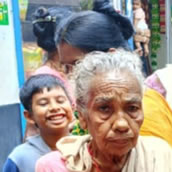
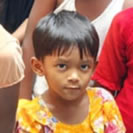
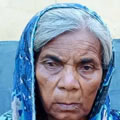
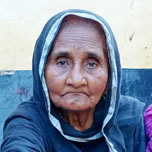
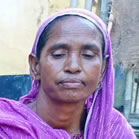
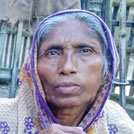




Comments